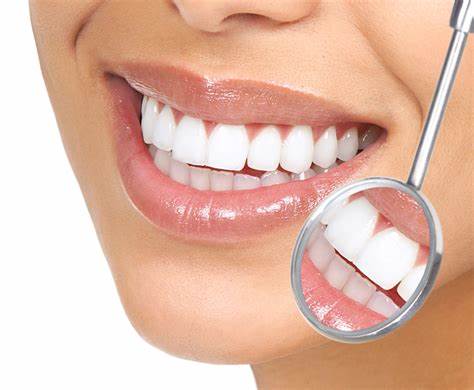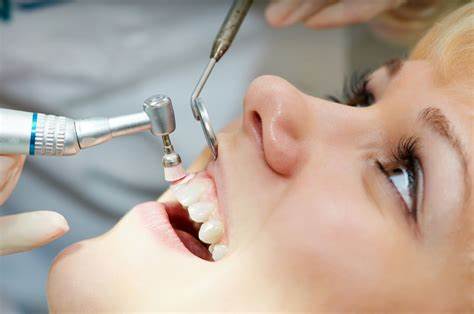Six dental hygiene tips for healthy white teeth

This is the most widely used confirmation phone that people use to inform camera operators that they are ready to take a photo. I believe that you have used it at some point. The purpose of cheese is to make your teeth visible and make you look like a smile. Poor oral hygiene will allow anyone to say something simple, such as cheese or a smile.
However, it cannot be said that cheese or smile is dwarfed by the avalanche of teeth and oral diseases. If you treat your teeth with care, you may develop these diseases. Diseases such as gum disease, oral cancer and terrible breathing (which is often a sign of other oral problems) can invade your mouth and turn your life into hell.
To be fair, in addition to not caring for dental hygiene, this problem may also be wrong for some people. Are you tired of shutting up in your social circle? Or do you know someone has a serious tooth nightmare? Here are some dental hygiene tips to make sure you always maintain good health and white teeth.
1. Brush your teeth properly
Yes, I am talking about the mouth, not the teeth. The reason is that your teeth are not the only thing in your mouth, you have chewing gum, tongue and palate. Those also need cleaning. When brushing your teeth, place the toothbrush bristles at a 45-degree angle to the gum line so that the bristles come into contact with the teeth and gums. Use the front and rear, up and down brush. After completion, repeat the same steps for the inner surface of the teeth and gums. Then brush the surface and upper jaw of your tongue. This will help remove bacteria that cause bad breath. Remember to brush your teeth and gums gently, don't attack them with bristles, because it does more harm than good. In addition, develop the habit of brushing your teeth at least twice a day, preferably morning and evening.
2. Regular flossing
As good as brushing your teeth regularly, cleaning your teeth is not a whole responsibility. Brushing can clean the surface of the tooth, but it does not clean the gap between the teeth. This is the origin of dental floss. It helps to remove food debris and other harmful substances that are stuck between the teeth. If you really care about your dental hygiene (you should do this), develop the habit of cleaning your floss at least once a day.
3. Make sure your diet is good for your teeth
For most people, if not everyone, the main reason we eat is because it tastes good. But have we considered how this different food or snack affects our teeth? Foods such as nuts, fruits (such as apples), cheese, chicken and vegetables are good for the teeth. One more thing to understand about cheese is that it will cause your salivary glands to secrete more saliva and neutralize the acid.
4. Limit soda and alcohol intake
Tobacco is one of them, something you should stay away from. Avoiding this can avoid some periodontal complications such as oral cancer. In addition, things taken to cover up the smell of tobacco, such as candy, tea or coffee, only double the damage done by tobacco to the teeth. You should also limit the amount of soda and alcohol intake. These contain phosphorus, which is an important mineral for health. But too many things are harmful, and this also applies to phosphorus. Too much calcium can deplete the body's calcium levels, leading to dental hygiene problems such as tooth decay and gum disease. Instead, drink some beverages and water that help strengthen the strength of your enamel. These drinks are better at replenishing your body than any sugary drink.
Here's a helpful tip: If you have to drink soda or alcohol, use a straw to avoid direct contact with your teeth.
5. Regular visit to the dentist
Applying all of the above points is not an excuse for not having regular dental checkups. All you can do is do your best and leave the rest to the dental care professional. As long as your schedule allows, develop a routine to go to the dental office regularly for a comprehensive oral examination and tooth cleaning. There are some dental problems that you may not recognize yourself. Sticking to this can save your entire world from harm in the long run.
6. Put some fluoride in your mouth before going to bed
Fluoride helps strengthen the surface of the tooth. Why wash it off after brushing? For many people, it may not be ideal to have toothpaste residue in your mouth all day long. Frankly speaking, this is not logical because you are likely to accidentally eat toothpaste residue during the day.
So it is not wise to brush your teeth when you are ready to work in the morning. But what about the night before you go to sleep? Now is a good time to do this. Do not rinse the toothpaste with water after brushing, so that fluoride adheres to the tooth surface.
If you have just eaten a meal that will leave a residue in your mouth, brush your mouth twice. The first time is to remove food debris and avoid bacterial growth. After brushing your teeth for the second time, spit out the toothpaste and leave the residue on your teeth instead of rinsing with water.
YOU MAY ALSO LIKE






